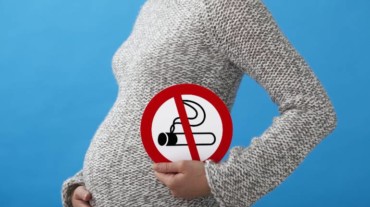
As per the Global Adult Tobacco Survey conducted in 2016-17 in India, every tenth adult person was a smoker. The prevalence of smoking in men was seen to be 19 percent and in women it was 2 percent. These percentages suggest a significant number of women smokers, although lower compared to men.
Various reports suggest that while Covid induced stress and anxiety may have contributed to increased use of cigarettes, fewer smokers seem to be trying to quit during the pandemic.
Also read: Covid-19 vaccine and smoking: All you need to know
There is also a strong link between smoking and covid infection. According to a 2020 study published in the New England Journal of Medicine, smokers are 2 to 4 times more likely to be admitted to an intensive care unit, as compared to non-smokers and require mechanical ventilation or die (with no gender-related correlation).

Smoking and tobacco dependence poses various unique health risks for women.
Smoking adversely affects premenstrual symptoms in women. Studies have shown a 50% increase in severe premenstrual symptoms such as cramps, which lasts two or more days in women who smoke compared to those who don’t.
Also read: An ENT specialist explains what smoking can do to your oral health
There are more than 7,000 chemicals, which are inhaled during smoking. Some of them adversely affect the reproductive health of women. 1, 2-butadiene and benzene can reduce fertility in women. These chemicals decrease the chance of ovulation and decrease the mobility of the egg travelling through the fallopian tube into the uterus. That results in ectopic pregnancy (fetus developing outside the uterus). Ectopic pregnancy is invariably fatal for the fetus and can be life threatening for the mother.

If the mother is smoking, there is a higher chance of low birth weight of the newborn. The lungs fail to develop properly during the fetal period. There can be birth defects i.e., cleft lip and cleft palate. There is also a higher chance of miscarriage. Breast milk can contain nicotine and there is a higher chance of sudden infant death syndrome in such infants.
It is a well-known fact that there is a higher incidence of lung cancer in persons who smoke, as many of the chemicals in the smoke are carcinogenic. Women are no exception. Smoking also increases the risk of cervical cancer, which is specific to women. According to a Danish study, premenopausal women smokers are 6 times more likely to develop rectal cancer than those who do not smoke. It is never too late to quit smoking. The risk of cervical cancer reduces significantly after every passing year of smoking cessation.
Select Topics of your interest and let us customize your feed.
PERSONALISE NOWSmoking cessation is tough but definitely possible. With strong determination and aided by therapeutic measures like nicotine replacement therapy, gradual or sudden cessation of smoking is definitely possible. Especially during the covid-19 pandemic, efforts should be made at every level (individual and government) to stop smoking for a healthier life.